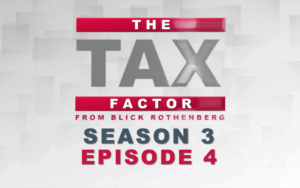
Autumn Budget: Why Retail and Hospitality Need Urgent Fiscal Support
Businesses are struggling to survive higher running costs
29 August 2025 | Authors: Darsh Shah
As the UK heads toward the Autumn Budget, all eyes are on how the Government will balance fiscal discipline with targeted support for industries under strain
Policy Context: A Sector Under Pressure
Few sectors are as exposed as retail and hospitality – cornerstones of the economy that provide millions of jobs and contribute to local communities across the country. Yet, they are also some of the hardest hits by rising costs, from business rates and staffing expenses to supply chain inflation.
Darsh Shah, Partner and Hospitality & Retail Co-lead, comments:
The UK’s hospitality and retail sector is struggling with higher running costs due to Government policy. To help them survive, the Chancellor, Rachel Reeves, needs to ease their financial pressures in the Autumn Budget.
Why Costs Are Rising – And Why It Matters
Several policy-driven factors have intensified the financial squeeze. The recent increase in employer National Insurance Contributions (NICs) adds direct cost pressures on businesses already facing reduced consumer spending power. Higher business rates remain a structural burden, while VAT rates in hospitality have returned to pre-pandemic levels, pushing prices higher at a time when consumers are tightening their belts.
This matters not only to business owners but to the wider economy. Retail and hospitality are major employers of younger and lower-income workers; sustained financial strain could mean closures, reduced staffing, and fewer entry-level opportunities. For local high streets and town centres, the implications are stark: shuttered shops, weaker footfall, and declining community vibrancy.
Policy Levers the Chancellor Could Pull
A range of targeted measures that could help stabilise the sector without requiring blanket subsidies:
Employer NIC Reduction
The increase in employers National Insurance Contributions (NIC) has been a heavy burden for the sector to bear. Rachel Reeves could lower employer NIC to 10% temporarily to give retail and hospitality businesses some breathing room.
Lowering NIC, even temporarily, would directly reduce payroll costs – particularly important for hospitality, where labour often represents the largest expense.
Business Rate Relief
The Chancellor should consider increasing the government funded business rate relief of 40% available on each property to 60% for the rest of 2025/26… The cash cap limit of £110,000 per business needs to increase as well, at least by inflation.
Adjusting business rate relief would ease one of the most persistent fixed costs for physical retailers and venues, helping protect high street viability.
VAT Reduction in Hospitality
Additionally, Rachel Reeves could lower Value Added Tax (VAT) to 12.5% – 15% in hospitality so that prices are kept lower, which would boost demand and therefore increase their overall revenue.
A temporary VAT cut could help operators keep prices attractive for consumers, supporting demand during a period of weak household confidence.
Streamlining Pavement Licences
The Chancellor could increase pavement licences to all areas in UK and ensure all local councils have the same system and requirements to grant these. Currently the system and requirements vary between constituencies which creates an extra administration burden for businesses who operate in multiple areas.
Consistency across local authorities would reduce red tape for businesses trying to adapt to shifting customer behaviour, such as demand for outdoor dining.
Implications: A Test of Policy Priorities
The Autumn Budget is likely to be a balancing act. On one hand, the Chancellor faces pressure to maintain fiscal credibility in financial markets. On the other, measures like those proposed could provide targeted relief to sectors that, if left unsupported, risk contraction at a time when economic growth is fragile.
Supporting retail and hospitality has knock-on benefits: safeguarding jobs, protecting town centres, and sustaining tax revenues in the long run. The question is whether the Government will see sector-specific relief not as a giveaway, but as an investment in economic resilience.
What Businesses Should Consider Next
While the Autumn Budget outcome remains uncertain, businesses can take proactive steps:
Scenario Planning: Model cashflow outcomes under different policy scenarios – such as VAT relief, NIC reductions, or no change at all.
Operational Efficiency: Review staffing, supply chains, and property usage to identify areas for cost reduction that don’t compromise customer experience.
Engagement: Join industry associations or local chambers to ensure your voice is represented in policy discussions.
Adaptability: Consider revenue diversification strategies – such as e-commerce integration or events – that reduce dependence on footfall alone.
The months ahead will reveal whether fiscal policy gives the sector breathing space. In the meantime, businesses that plan for multiple outcomes will be better placed to weather uncertainty and seize opportunities if relief measures are introduced.

Retail & Hospitality Hub
We have considerable experience of working with businesses in the retail and hospitality sectors, at all points in the business lifecycle
Our retail and hospitality clients include businesses of all sizes, from family-run and independent groups to franchises and private equity-backed organisations
Contact Darsh

You may also be interested in

Impact of tournaments on the hospitality sector

The London Restaurant Industry in 2025













